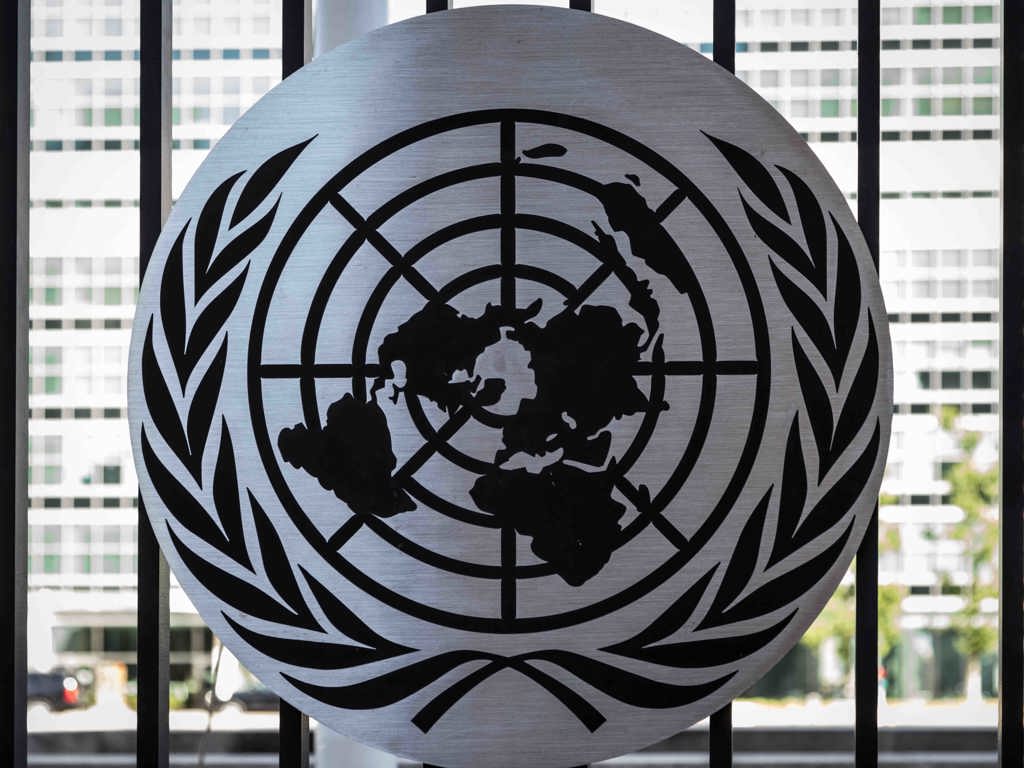At a time in history when geopolitical issues are proliferating, the global community desperately needs an unbiased decision-making body concerned with security, not with strengthening the interests of individual states.
On Oct. 18th, the United States vetoed a UN Security Council draft resolution introduced by the Brazilian delegation, which called for a “humanitarian pause” amidst the Israel-Palestine conflict.
The U.S veto on Brazil’s humanitarian-focused draft resolution follows a previous attempt made by the Russian Federation to introduce a cease-fire focused draft-resolution, which was rejected by several permanent security council members.
While the UN Security Council in theory serves as the international community’s primary organism for responding to global security threats, its dated structure counters the council’s objectives. The prevalence of veto-power usage by the five permanent members (P5) and unwillingness to appoint new permanent members puts international security in jeopardy.
The most recent veto usage by the United States in the Security Council inherently delays humanitarian aid and room for peacekeeping between Israel and Palestine. In doing so, international security is diminished, while the need for Security Council reform only increases.
UN Security Council Structure:
Established during the WW2 post-war period, the United Nations Security Council welcomed the United States, the USSR (current-day Russian Federation), the United Kingdom, China and France as permanent members of the council. These five permanent members (P5) all hold veto power, as established in Article 27(3) of the UN Charter. The article details that all Security Council decisions are approved by the affirmative vote of nine members, as well as by the approval of the five permanent members. In other words, if a permanent member votes “no” in light of a draft resolution, it will be rejected regardless of other council member’s affirmative votes.
In addition to the five permanent members of the council, ten non-permanent members are elected by the UN General Assembly on a yearly basis to serve for two-year terms. Non-permanent membership gives voting power to elected member states but does not grant veto power. Originally, Security Council membership was increased from 11 total members to 15 members through a General Assembly recommendation to amend the Charter. Despite calls for reform and expansion of permanent membership having gained relevancy, the Security Council’s structure has not been revised since.
Explaining the U.S veto:
The U.S’ most recent cast of the veto vote on Brazil’s draft resolution shows a relentless support for the Israeli state on behalf of the United States. According to UN data, the United States has vetoed over fifty Security Council draft resolutions that critique the Israeli state between 1972 and 2004.
In a speech delivered on Oct. 18th by the U.S. Representative to the United Nations, Linda Thomas-Greenfield, she explains the veto vote on Brazil’s draft resolution.
“The United States is disappointed this resolution made no mention of Israel’s right of self-defence. Like every nation in the world, Israel has the inherent right of self-defence, as reflected in Article 51 of the UN Charter. Following previous terrorist attacks by groups such as al-Qaida and ISIS, this Council reaffirmed that right. This text should have done the same,” said Thomas-Greenfield.
At its core, the proposed draft-resolution stressed humanitarian aid in response to the Israel-Gaza conflict through temporary humanitarian pauses to allow UN agencies and aid to assist civilians. Notably, the draft resolution outlined condemnation for Hamas’ attacks in Israel, as well as all hostilities harming civilians.
Although the draft resolution did not outright spell out Israel’s right to self-defence, it is because the necessity for such a statement did not exist. For instance, the voting structure of the Security Council is outlined in Article 23 of the UN Charter, but that does not mean that every draft resolution must outright reference said article for it to apply within the workings of the resolution.
Likewise, the reasoning given for the U.S.’ veto to Brazil’s resolution follows the same logic. The resolution focused on extending humanitarian aid for civilians and condemning terrorist attacks on Hamas’ behalf, not particularly on issues of defence or complete cease-fire like earlier draft resolutions proposed by the Russian Federation. Seeing as a state’s self-defence rights were out of the scope of the draft resolution, and because these rights are already outlined in the UN Charter, the need to reaffirm Article 51 is minimal to none.
This seemingly arbitrary requirement put forward by the U.S appears as a calculated yet biased move. As a longtime ally of the Israeli state, it is expected for the U.S to shift the Security Council away from binding resolutions that could open a door for condemnation of the Israeli state for the ongoing conflict. Although reflective of long-standing stances on the Israeli state, the U.S’ veto vote on Brazil’s draft resolution is unfortunate.
Considering the overwhelming support for the draft resolution expressed by twelve Security Council members, it is concerning that a veto vote on behalf of the U.S could entirely stall the resolution from being implemented.
Moving forward, the international community must take a deeper look into the voting structure of the Security Council and embrace reform. Failure to do so will sustain a system that bends at will to the interests of permanent members with veto power, instead of serving as a collaborative body for enhancing security.

